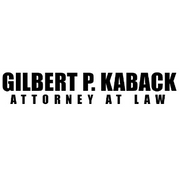
If you own a business and enter into a financial agreement with a client, vendor, lender, subcontractor, or other party, it’s reasonable to assume its terms will be carried out. What if a third party interferes, though, and essentially ends the arrangement? Known as tortious interference, this scenario is unfortunately common – but you may be entitled to compensation if you end up a victim of it. A tort law attorney will evaluate your situation to determine if you have grounds to sue. In the meantime, here’s what you should know about building a strong claim.
How Tortious Interference Works
What Does the Law Say About Tortious Interference?
Tortious interference occurs when a third party intentionally and maliciously thwarts or subverts a relationship two or more other parties have previously established. While criminal law does not recognize tortious interference as an offense, tort law does. That means you may be able to file a civil suit against the meddler and recover compensation for any losses incurred as a result. Victims of this type of tort can include both people who were forced to violate a contract and other parties who, though not directly victimized, missed out on the benefits of the agreed terms as a result of the obstruction.
How Is Tortious Interference Proven?
 Not every kind of competitive business practice constitutes tortious interference. To establish that impropriety occurred, an attorney will have to provide evidence to show that a valid contract or relationship existed, that the defendant knew of the agreement, and that they used unethical tactics to interfere, such as spreading misinformation, driving off business via intimidation, or committing outright fraud. The attorney will also have to establish that these acts were malicious – that is, both intentional and without any valid justification. Negligence alone won’t be enough to support a claim.
Not every kind of competitive business practice constitutes tortious interference. To establish that impropriety occurred, an attorney will have to provide evidence to show that a valid contract or relationship existed, that the defendant knew of the agreement, and that they used unethical tactics to interfere, such as spreading misinformation, driving off business via intimidation, or committing outright fraud. The attorney will also have to establish that these acts were malicious – that is, both intentional and without any valid justification. Negligence alone won’t be enough to support a claim.
What Kinds of Damages Can a Claimant Recover?
If you can prove all the elements of tortious interference with the help of an attorney, you can recover funds for lost profits, lost benefits, loss of business goodwill, and damage to your reputation. Depending on the circumstances, punitive costs may also be levied against the defendant.
If a third party interfered with your business arrangements and it’s affected your bottom line, reach out to Gilbert P. Kaback Attorney at Law. This seasoned lawyer practices out of Colchester, CT, and is proud to advise clients throughout New London County in a variety of legal areas. With more than 22 years of experience in commercial litigation, he knows what it takes to build a winning claim following tortious interference. To schedule a consultation with this knowledgeable attorney, call (860) 537-0874 or visit his website.
About the Business
Have a question? Ask the experts!
Send your question

